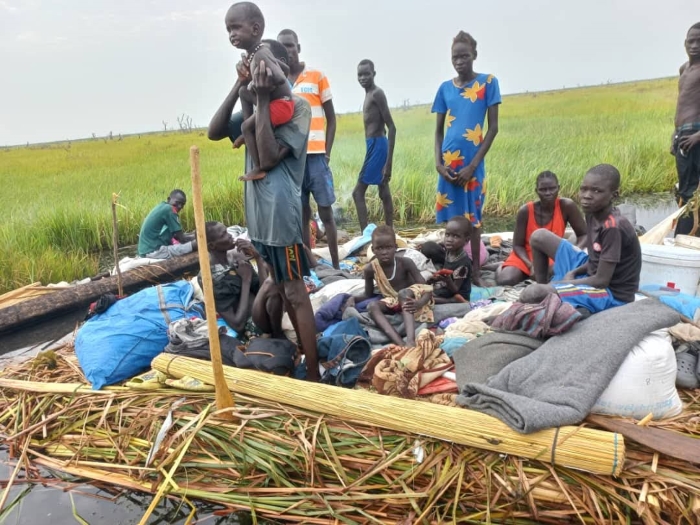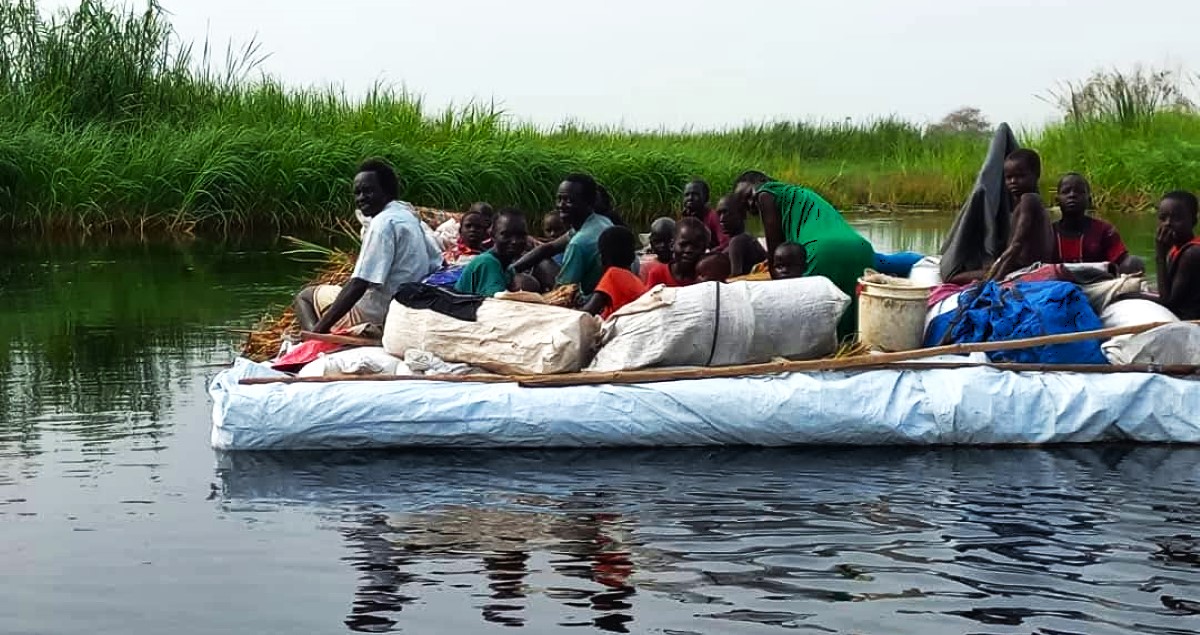Mayday!
Airstrikes that have been shelling Fangak Country in South Sudan throughout the month of May have destroyed an important watercourse causing floods in the area.
Resulting floods have killed more than seven people, including a baby.
Over 30,000 people are estimated to have been displaced in the county, with many seeking refuge in neighboring areas or braving perilous journeys through floodwaters.
The people of Fangak County are reported to be grappling with a humanitarian crisis following a series of aerial bombardments that have shattered their fragile sense of security.
On May 3, 2025, airstrikes struck Old Fangak, destroying a Médecins Sans Frontières (MSF) hospital and pharmacy, the only major medical facility serving over 110,000 residents.
A subsequent strike on May 5 near a World Food Program warehouse in New Fangak damaged a critical dyke, unleashing floodwaters that have inundated homes and displaced thousands.
The dike, a lifeline protecting communities in this flood-prone region, was breached during an airstrike, leaving civilians with nowhere to turn as water engulfed their homes.
When man-made and natural calamities join hands
Many residents, already traumatized by the earlier hospital bombing that killed at least seven people, including a 9-month-old child, and injured 20 others, are now forced to wade through floodwaters or flee by boat.
There is widespread panic, with families seeking shelter on higher ground or in makeshift camps, with their possessions lost to the deluge.
“It’s like the world has turned against us,” said Nyakong Nyakong, a mother of three from Old Fangak.
“First, they bombed our hospital. Now our homes are submerged. We have nothing left, and nowhere safe to go.” Nyakong’s family, like many others, is living in knee-deep water, with children and the elderly particularly vulnerable to disease and exhaustion.
The United Nations Mission in South Sudan (UNMISS) and human rights groups have condemned the airstrikes, calling them a violation of international humanitarian law.
The destruction of the dyke has exacerbated an already dire situation in Fangak, where flooding since 2019 has limited escape routes and strained resources.

Local leaders and humanitarian organizations are sounding the alarm. “The people of Fangak are caught between violence and nature’s wrath,” said Biel Boutros Biel, Fangak County Commissioner.
“Without immediate aid and protection, we are staring at a catastrophe.” MSF has warned that the loss of medical services, combined with flooding, leaves the population at risk of disease outbreaks and starvation.
The South Sudan People’s Defense Forces (SSPDF) have acknowledged conducting “strategic aerial bombardments” in Jonglei and Unity states but have not commented on the civilian toll or the dyke’s destruction.
The attacks come amid heightened tensions following the collapse of a power-sharing deal between President Salva Kiir and First Vice President Riek Machar, raising fears of a return to full-scale civil war.
As the waters rise, the people of Fangak are left to navigate an uncertain future.
Humanitarian access remains limited, with damaged infrastructure and ongoing insecurity hampering relief efforts. The international community is being urged to act swiftly to provide emergency aid and press for a ceasefire to protect civilians caught in the crossfire.
For now, the residents of Fangak endure, their resilience tested as they live on water, hiding from violence and clinging to hope for peace. Juba Global News Network will continue to monitor the situation and bring updates as they unfold.

